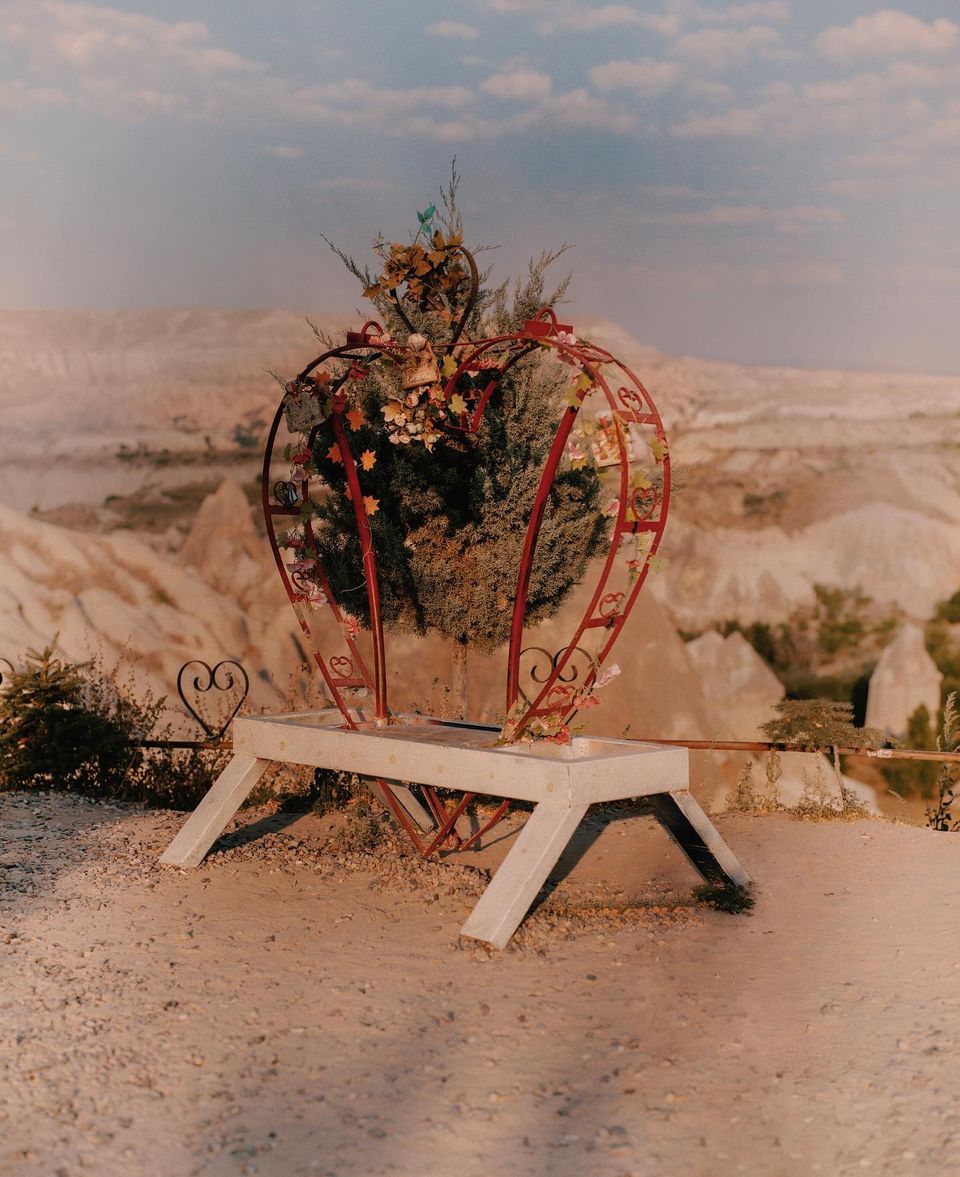Climate Heartbreak

LISTENING: to the bustle of New York's Bibble and Sip coffee shop
FEELING: anxious about all my looming deadlines
SEEING: my matcha blend into the strawberry milk beneath
There are quite a few names for the way the climate crisis negatively affects a person's mental health. Some people call it climate anxiety or climate grief. What about climate heartbreak?
As I reflect on the way rising temperatures are rapidly changing my life in New York, I realize that anxiety or grief don't quite capture what I'm feeling. Perhaps it's because I live in a perpetual state of anxiety or don't know the true depths of grief (I have yet to lose a loved one to death).
Heartbreak, however, is one emotion I know well. And what I feel is heartbroken.
Welcome to Possibilities, a creative climate newsletter on the possibilities that lie where crisis meets community. I’m Yessenia Funes, and my heart feels pretty broken these days.
I was with my family Sunday when my nephew blurted out, "There's a tornado alert." The National Weather Service issued a tornado watch for parts of New York. It's hard to describe the panic that hit me at that moment.
After New York's orange apocalyptic skies in June, I had a nightmare where a tornado formed and landed right in front of me. I woke up soon after that, but for a brief moment in that dream, I felt the terror of imminent death. Even when asleep, I knew nothing could help me survive the force of a towering twister.
Though I've awoken from countless apocalypses, I have yet to live through such destruction in the real world. Even for Superstorm Sandy, I was away at school. On the other hand, I have survived more heartbreaks than I care to admit. Every time, they felt cruel yet inevitable. The slow degradation of my normal life at the hands of the climate emergency feels similar. For some foolish reason, I hold my breath in anticipation of some heroic outcome — even though I know that some level of heating and death are already baked into our planet no matter what actions leaders take now.
This reminds me of the many times I expected commitment from a lover only to hear some sorry excuse for us to part ways. I should've known better, but I still held onto hope. I don't want to give into climate doomism, so this approach is necessary to cope with the gravity of climate calamity — but it doesn't make the heartbreak of the science any easier.
And with tornadoes — like new loves — there's almost a thrill of the unknown. But that fascination is coupled with the painful recognition that I'd much prefer to never know and always wonder. Climate change is challenging our normal. A week ago, an estimated 11 tornadoes touched down in Chicago, a city outside what we traditionally know as Tornado Alley.
This is what breaks my heart. The climate crisis is disrupting everything.
Summer isn't the playful, carefree period it once was. Instead, the heat is proving deadly and the air toxic. Beach days are limited, and I must now consider how to prepare for a hurricane or tornado. I know, what first-world problems, but this shift is real for all New Yorkers.
Outdoor workers have to check those same forecasts and decide whether they can safely head to work — to deliver food by bike or mow lawns outside. Although, most don't even have a choice; they've got to work to feed their families and pay their bills.
I now ask myself: How do I respond if a tornado strikes? How can I prepare now? Where do I take cover? Where do my loved ones go? Will they be safe? Will anyone?
I imagine that most New Yorkers aren't asking themselves those same questions — and that alarms me. Across the globe, our weather patterns are shifting, and we need to prepare. Especially Black and Brown immigrant families like mine.
After my nephew flagged the local tornado watch this weekend, I instructed my sister and her two babies on where to take shelter in their house should a tornado form in the skies above their Long Island neighborhood. My niece froze as she realized how serious I was. She was scared.
How many others have a disaster-obsessed tía in their mix to offer the same guidance?
My heart breaks over all that we've lost — and all that we still don't know we will lose. 🌀
Rest in Power
While we can't say for certain that climate change led to these specific weather events (we need attribution studies for that), we do know that the Earth's rising temperatures are already creating more disasters like these.
Already this year, over 100 migrants have died crossing the dangerously hot desert lands along the U.S.-Mexici border.
In Colombia, at least 15 people are dead after heavy rains triggered landslides Monday night.
Floods and landslides in South Korea have killed over 30 people since bad rains started on July 9.
Last week, a building collapsed in Brazil from serious rainfall, killing at least 14 people.
Closer to home, flash floods on Saturday ended the lives of at least five people in Pennsylvania. A baby and his 2-year-old sister remain missing.
Record-breaking heat has killed at least 18 people in Phoenix so far this year. A county health agency is still investigating another 69 deaths.
A storm in the Balkans region killed at least five people.

